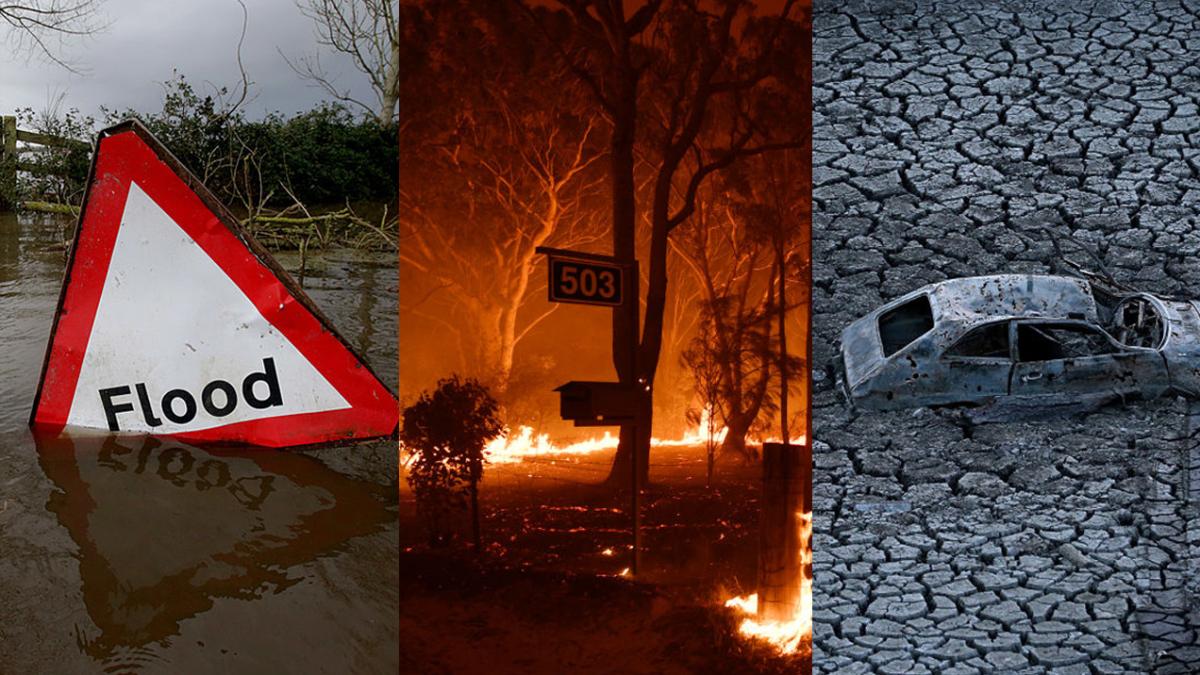
The Intergovernmental Panel on Climate Change (IPCC) issued its most detailed report on climate change today, calling the crisis a “code red for humanity”.
It’s the IPCC’s sixth report on climate change since 1990, written by hundreds of scientists and drawing on 14,000 research papers to address how the earth has been negatively affected by humans since the industrial revolution (1850-1900).
“This report must sound a death knell for coal and fossil fuels, before they destroy our planet,” United Nations secretary-general Antonio Guterres said.
“The viability of our societies depends on leaders from government, business and civil society uniting behind policies, actions and investments that will limit temperature rise to 1.5 degrees Celsius.”
Here are some of the major takeaways from the worrying IPCC report:
Global warming will hit 1.5C a decade before it was expected
If nothing changes, the earth is expected to warm by 1.5C above preindustrial level by 2030 (a decade before the IPCC predicted it five years ago). Under the historic Paris Agreement 2015, countries had to agree to keep temperatures at 1.5C.
However, according to the report, even if we rapidly cut emissions now the world will likely still warm to 1.6C before cooling down again.
CO2 and methane gas emissions are a major concern
The IPCC reported that in 2019 co2 levels were their highest in “at least two million years”. In that same year, methane and nitrous oxide were also at their highest levels in “at least 800,000 years”.
The report also included more data than ever on the dangers of methane case, the second most damaging greenhouse gas after CO2.
“If we do not halt our emissions soon, our future climate could well become some kind of hell on Earth,” said Professor Tim Palmer at the University of Oxford.
Humans are to blame for climate change
“It is unequivocal that human influence has warmed the atmosphere, ocean and land,” the beginning of the report reads.
Scientists can now pinpoint the extent humans are to blame and thanks to us we’ve caused the world to heat up by 1.1C. The report also notes that some parts of the world are heating up a lot faster, like the Arctic, which is heating up more than twice as fast.
We’ll see even more extreme weather in the future
In the future we will see more extreme weather events such as heatwaves, flooding and droughts. Many of which will affect Australia.
Some of the key weather changes we can expect to see in Australia are: rising sea levels, worsened fires and longer fire seasons, more frequent droughts and worsened floods.

Rising sea levels are irreversible
The report warned that sea levels could rise two metres by 2100, and by a catastrophic five metres by 2150. The IPCC report also warned that some of the predicted rise in sea levels are now irreversible.
“In the longer term, sea level is committed to rise for centuries to millennia due to continuing deep ocean warming and ice sheet melt, and will remain elevated for thousands of years,” Chair of the IPCC Mark Howden said.
The IPCC report findings may be used as evidence to take countries to court
For governments and businesses that choose not to act on climate change, the findings of the IPCC report may be used against them in a court room.
“We’ll be taking this report with us to the courts,”said Kaisa Kosonen at Greenpeace.
“By strengthening the scientific evidence between human emissions and extreme weather the IPCC has provided new, powerful means to hold the fossil fuel industry and governments directly responsible for the climate emergency,” she said.
There’s still hope
But there’s still hope. This report comes just in time for the UN COP26 summit in Glasgow this November.
“We can do this together by coming forward with ambitious 2030 emission reduction targets and long-term strategies with a pathway to net zero by the middle of the century, and taking action now to end coal power, accelerate the rollout of electric vehicles, tackle deforestation and reduce methane emissions,” COP26 president Alok Sharma said.



